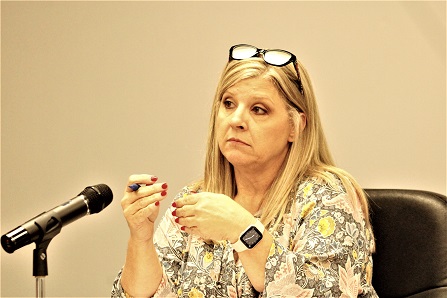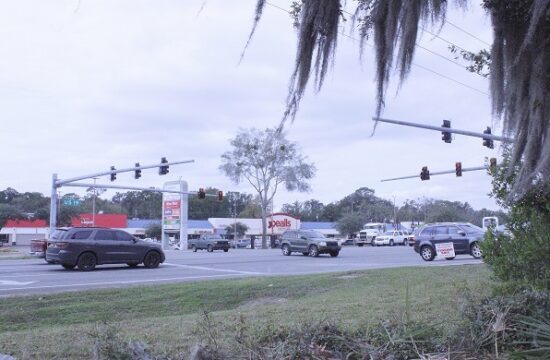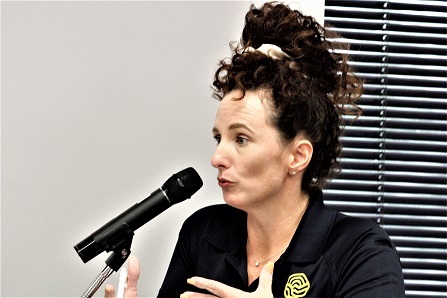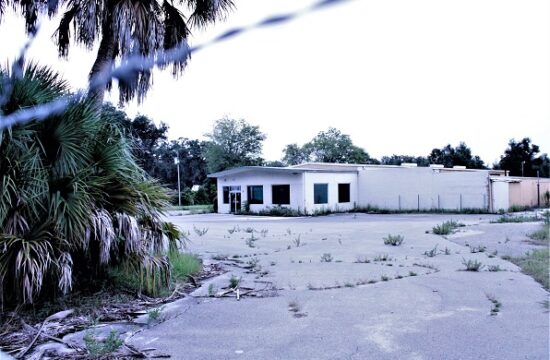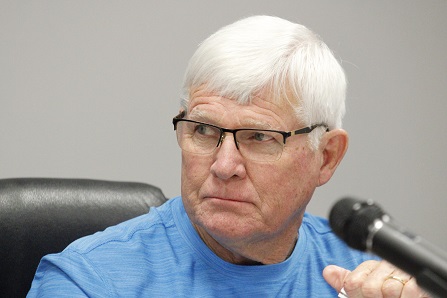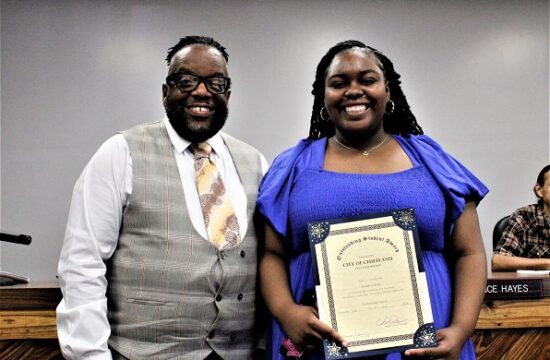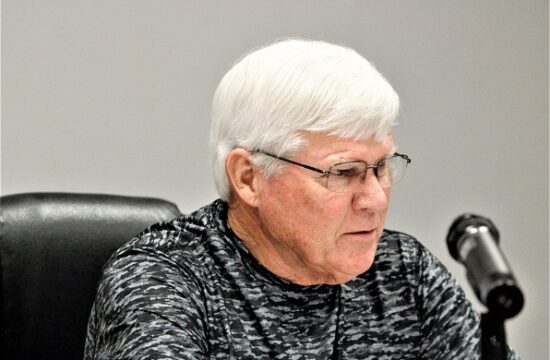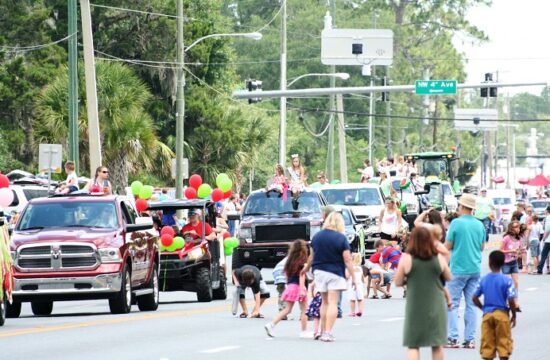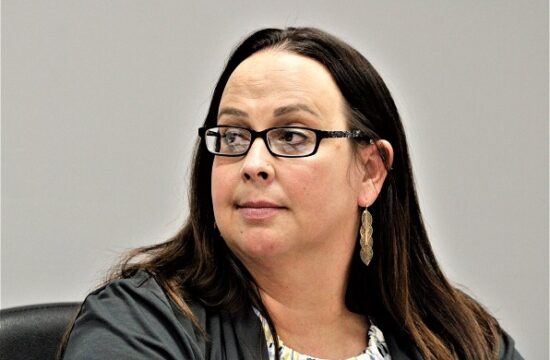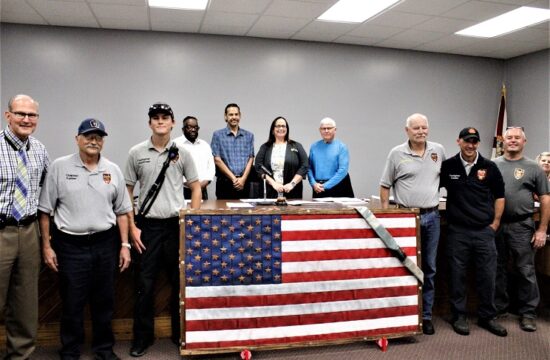By Terry Witt – Spotlight Senior Reporter
Funding from a federal program aimed at helping cities and counties recover from the 2020 COVID-19 economic shutdown was used by Chiefland City Commissioners Monday to pay for an expensive water pipeline repair and to give each of its 38 employees a $1,500 cash incentive.
The city has received the first of two installments of $547,000 from the American Rescue Plan Act (ARPA) and is carefully evaluating how to spend the money for its many economic needs in just about every department of the city for such essentials as a new roof for City Hall and new phone system for City Hall and police.
Commissioners approved the $1,500 in incentive pay for each city employee at the previous meeting but were required by law to amend their budget to reflect the mid-year increase in spending. The original estimate of $57,000 to pay for the incentive plan was raised to $73,000 to account for retirement and other benefits.
Crumbling Water Line
The board also set aside $250,000 to replace 1,000 feet of galvanized water pipe that was so badly rusted it literally sprang additional leaks and crumbled into pieces at times in spots where the pipeline was literally rusted beyond repair. City crews managed to temporarily fix the pipe.
City Manager Laura Cain said the pipe runs from NE 8th St. to U.S. 27A and is beyond repair.
“As the outside crew tried to repair this line, the more they tried to repair it the more it would crumble,” she said. “They continued to put repair bands on it and another hole would appear because it would be another rust spot that would shoot water. At this point, we have ‘band-aided’ the whole line until it can be repaired.”
She said the waterline will have to be directionally bored. The term directional boring means the city won’t dig an open trench to install the lines. A contractor will use a surface drilling rig to bore a horizontal underground path for the line.
Cain said contractor Buddy Ellis is ready to install the pipeline as soon as he can get parts. She said it could take a couple of days or a week to get the parts.
She said the city doesn’t know how much the pipeline replacement work will cost but she conservatively estimated $100,000 to $150,000.
“This a must. It must be done. The more they dug back the more they found. There was just no way to splice the line together. We’re going to have to replace the line,” she said.
Mayor Chris Jones suggested setting aside $250,000 of ARPA funds for the job.
“Being that we don’t have an understanding of what we need to do – I mean it’s 1,000 feet of line – there is a serious supply issue in getting this stuff. The $100,000 to $150,000 I would like to see increased to $250,000 for reserves and safety,” Jones said.
The council unanimously voted to commit $250,000 to the project.
ARPA Wish List of Spending
Cain and the city’s department heads laid out proposed projects they need for the future and believe should be funded with ARPA money. All emphasized that they need these improvements and equipment rather than simply want. No decisions were made by the board. The ARPA proposed projects were for discussion purposes.
Cain said City Hall needs a new phone system.
“When it goes down there’s no repairing it. It has to be replaced,” she said.
Police Chief Scott Anderson said he has the same phone system and when it breaks down, the department can’t find parts and the department’s IT person has to figure out how to make it work again.
Cain said she wants to put a new City Hall sign out front. Commissioner Norm Weaver had mentioned at the previous meeting that the abandoned clock tower on the City Hall lawn needs to be replaced by a nice City Hall sign.
Cost will be a factor in what the city eventually chooses for a sign. Electronic signs haven’t been discussed by the board but such signs would allow city staff to reprogram the sign daily for announcements. For the time being, the city is talking about a City Hall sign. Cain had mentioned in the same discussion with Weaver two weeks earlier that she would like to have the option of making announcements on the sign, though she never mentioned an electronic sign.
The city manager said the roof dates back to 2007 but has problems. She said she has been told the roof needs to be replaced.
Anderson said three Ford Explorers he ordered to replace his aging fleet of patrol cars have arrived. He said he thinks it would be appropriate to purchase the patrol cars with ARPA money rather than finance the vehicles. He said he can’t pick up the cars for the time being because of supply chain issues.
“They can’t get the equipment in them – cages, sirens, lights,” he said.
Cain said the street department needs to replace its 1991 backhoe, which was purchased used, with another newer model. She said it needs to be replaced soon because it may have to be retired from service.
The parks department needs to replace a 2009 truck.
Fire Chief James Harris said he needs to replace his oldest brush truck. Harris is skilled at adding life to aging trucks by replacing engines, bodies, etc., but he said this truck has reached the end of its useful life.
He also wants an air dryer for departmental equipment. When firefighters return from fighting a blaze, they wash their equipment. They currently air dry it by hanging it out to air dry. Harris said the dryer will permit bunker gear to dry in an hour.
Block Grant for Pipes
Based on the recommendation of a citizen’s advisory block grant task force, commissioners agreed to apply for a $700,000 Community Development Block Grant to replace aging water lines.
Cain has said at previous meetings that replacement of aging water lines in the growing city is a critical need.
There had been some thought that perhaps a block grant could be used to build an addition to the Luther Callaway Library, but that line of thinking has been replaced by the reality of an aging water and sewer system.
Cain said the city is researching a grant to build a new sewer treatment plant on the north end of the city.
Toll Road Request Shelved?
More than a year ago, the city commission told the Florida Department of Transportation that it wanted the state to build a new sewer plant on the end of town to accommodate growth, and an industrial park, if the toll road went through Chiefland.
But that request was made when the state’s M-CORES toll road study was in progress. The study was cancelled and defunded. The Florida Legislature has launched a new toll road program. The Northern Turnpike Extension, as currently proposed on maps, looks like it would pass through Levy County. The state is also proposing to construct the Suncoast Parkway 2 toll road extension from the end of Suncoast Parkway 1 at State Road 44 in Citrus County to U.S. 19 at Red Level south of Inglis. It would dump heavy toll road traffic on U.S. 19.
The city’s request for the state to build a sewer treatment plant and an industrial park for the city has been shelved, it appears, in the wake of the state abandoning the M-CORES toll road study.
Florida Department of Transportation U.S. 19 Project Engineer Ryan Asmus appeared before the city commission Monday night to explain upcoming improvements to U.S. 19, but the city commission didn’t mention its earlier request for a state-funded sewer plant and industrial park.
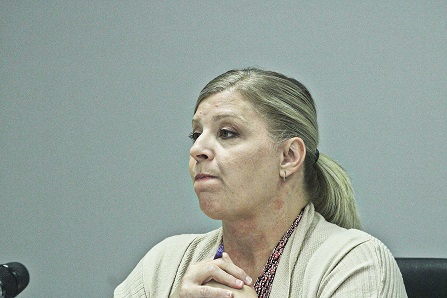
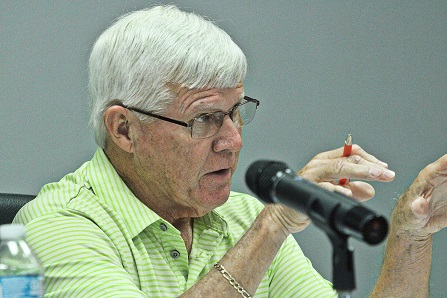
——————————
City of Chiefland Regular Meeting May 23, 2022; Posted May 24, 2022



